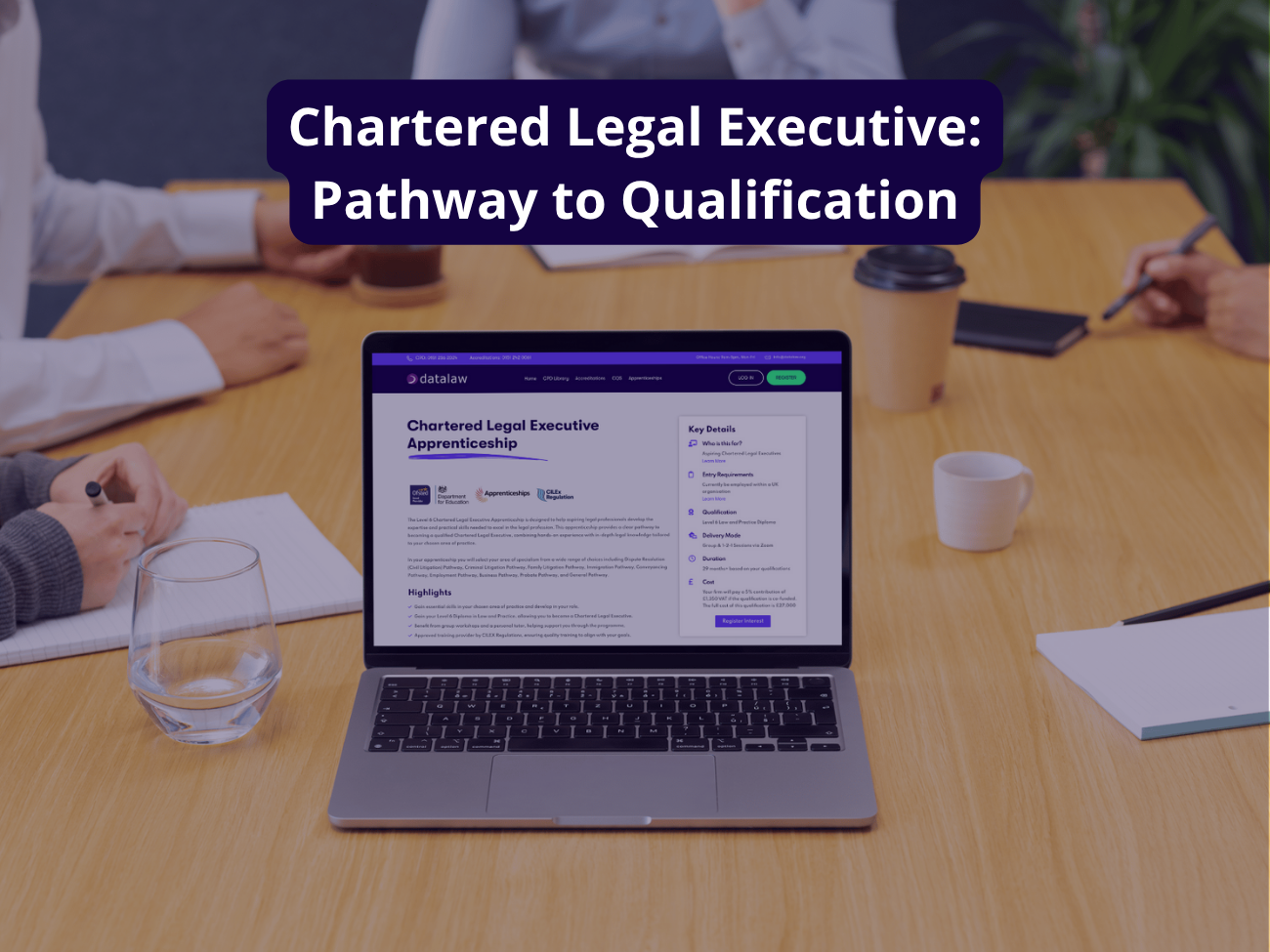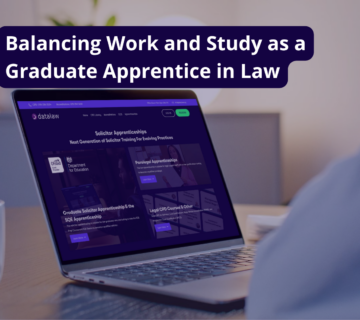For individuals seeking a professional route into the legal sector, becoming a Chartered Legal Executive presents a credible and well-regarded alternative to traditional solicitor pathways. The Chartered Legal Executive Apprenticeship provides a structured, accessible framework for qualifying in this role, combining academic study with real-world legal practice.
This article explores the function of Chartered Legal Executives, how the apprenticeship route is structured, and the benefits it offers to learners and employers alike. It also addresses how this approach fits into the wider legal landscape, particularly for those seeking practical, cost-effective routes into the legal profession.
Download our Free “Chartered Legal Executive Apprenticeship” Brochure
What is a Chartered Legal Executive?
Chartered Legal Executives are qualified legal professionals who often specialise in a specific area of law. They are recognised across the legal sector for their depth of expertise and are authorised to carry out many of the same tasks as solicitors. These tasks may include giving legal advice, handling cases, preparing legal documents, and representing clients in court.
Unlike solicitors, who typically follow a generalist training path before specialising, Chartered Legal Executives develop expertise in one area of law from the outset. This focus allows them to gain in-depth knowledge early in their careers, making them valuable assets to law firms, corporate legal departments, and public sector organisations.
Chartered status is awarded by CILEX (Chartered Institute of Legal Executives), and achieving it demonstrates both academic competence and professional experience. It is a recognised legal qualification in England and Wales, and it offers an alternative means of accessing senior legal roles.
How the Apprenticeship Route Works
The Chartered Legal Executive Apprenticeship allows learners to complete their qualification while employed in a legal role. Apprentices work and learn simultaneously, applying the knowledge they gain in formal learning modules directly to real-life legal tasks. This integrated model of training reinforces understanding and provides a practical context for legal theory.
The apprenticeship is flexible in terms of subject area. Learners select their preferred pathway based on their interests or current employment. Pathways include:
- Dispute Resolution (Civil Litigation)
- Criminal Litigation
- Family Law
- Immigration Law
- Probate Practice
- Conveyancing
- Employment Law
- Business and Commercial Law
- General Legal Practice
This range allows learners to tailor their qualification to their career aspirations. Apprentices receive supervision from their employer and structured support from training providers. Learning may include a mix of online resources, in-person workshops, assessments, and practical assignments.
Combining Practical Skills with Academic Knowledge
One of the key strengths of the apprenticeship model is that it blends theory with practice. Apprentices are not learning in isolation; they are developing their legal skills within the working environment, which helps them gain confidence, problem-solving ability, and professional judgement.
Academic modules focus on legal principles, ethics, and procedures relevant to the learner’s chosen area of practice. Over time, apprentices become familiar with casework, legal drafting, and client communication. This process prepares them for the practical realities of legal work and develops their ability to manage responsibilities independently.
Additionally, apprentices are assessed on their legal knowledge and their ability to apply that knowledge in a professional context. This dual emphasis ensures that qualification is based not only on academic performance but also on workplace competence.
Wider Benefits and Career Progression
The Chartered Legal Executive Apprenticeship is well-suited to those entering the legal profession, as well as those already working in legal support roles who want to progress. For example, paralegals, legal assistants, or business administration staff may use this apprenticeship to develop their legal careers and gain professional recognition.
Once qualified, Chartered Legal Executives can apply for practice rights in their area of expertise. This may include advocacy rights or the ability to set up their own legal practice. They can also go on to become partners in law firms or progress to other senior roles. In some cases, they may later choose to qualify as solicitors, using the experience and learning they gained during the apprenticeship.
Employers also benefit from the apprenticeship route. It enables them to train employees in ways that are directly relevant to the organisation’s legal needs. This targeted development supports staff retention, enhances internal capabilities, and offers a cost-effective solution to long-term workforce planning. Government funding is available to support apprenticeship training, significantly reducing the financial burden for employers.
A Cost-Effective Alternative to University
Traditional legal education, such as a law degree followed by the Legal Practice Course (LPC), can be expensive and time-consuming. The apprenticeship pathway provides an alternative that removes many of the financial barriers. Learners earn while they train and avoid the student debt associated with full-time university study.
In addition to being more accessible financially, the apprenticeship also allows for a smoother transition into professional life. Apprentices gain real experience from the outset, and they often build strong relationships within their organisations that support long-term employment.
Who Should Consider This Route?
This pathway is ideal for individuals who:
- Are already working in a legal setting and want to formalise their qualifications.
- Are school leavers or career changers looking for a structured, supported entry into law.
- Prefer to learn through hands-on experience rather than full-time academic study.
- Seek a more affordable and practical approach to gaining a legal qualification.
The apprenticeship offers flexibility, practical relevance, and professional credibility. It aligns well with modern career goals and the growing demand for skilled, specialised legal professionals.
Learn More About Datalaw’s Apprenticeship
If the Chartered Legal Executive Apprenticeship sounds like a route you’d like to explore further, Datalaw has recently released an apprenticeship programme designed to support learners on this pathway. It includes tailored learning, practice-area flexibility, and access to expert support.
Discover more of our Legal Updates.



